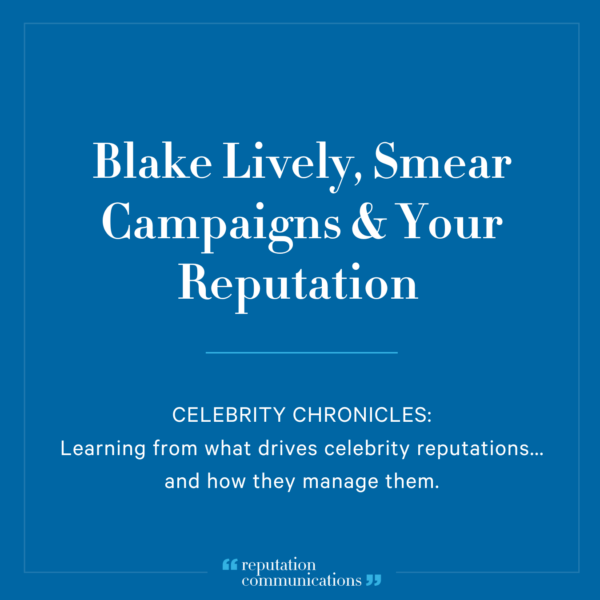
The free flow of information online has made online reputation management essential for nearly everyone. But CEOs, industry leaders, the C-suite and VIPs face special challenges. They are scrutinized both online and off. That loss of privacy can impact all areas of their professional and personal life. They can be the subject of articles, Internet conversations, commentary and speculation on topics ranging from their appearance and behavior to leaked company documents. Whether on mainstream platforms or posted anonymously, such content can go viral—or end up on the front page of The New York Times. This often occurs when the actions or statements of industry leaders portray them as out of touch with the culture of the people their companies target as consumers. Such visibility is now more pressing with the increased use of AI in search engines like Bing and Google.
Pressing Issues
When subjects of such attention are high-net worth individuals or philanthropists who support major political or social justice issues, every move they take is examined closely from both social and political standpoints. When a CEO is given a raise on top of a multi-million dollar annual salary, the public evaluates its appropriateness on social media as well as on TV. They want to know if the organization he or she heads fairly compensates its employees, has generous benefits or has had mass layoffs recently. Whether you are the CEO of a public company or an active political donor, motivated and anonymous detractors can overwhelm the Internet with inaccurate and derogatory commentary about you, your organization and business. That is not an uncommon tactic. It can be used by anyone who opposes your views or would benefit from diminishing the stature of your company. Not all the news is bad, though: public figures also attract large numbers of legitimate, supportive followers. Supporting those followers with online resources can be a powerful tool in protecting a reputation.
The Online Public
All of these sources contribute to the amount of information available about such individuals online, where the majority of the public now conducts its research. The source, credibility, tone and authenticity of the information available on the Internet can benefit or harm their business relationships and brands. It can reinforce their credibility and influence in supporting the issues important to them – or not. It can also reduce or enhance value for their company’s shareholders. For example, Corporate Responsibility magazine found in a survey of 1,000 people, 69% of perspective employees would not take a job at a company with a bad reputation and 84% would take a job at a company with an excellent one. Even ten years ago, it was possible for high-profile “influencers” to keep a low personal profile outside of their roles in business, philanthropy and politics. Doing so enabled a reasonable level of privacy and contributed to physical security. Conventional public relations tools served as a reliable way for CEOs to influence public opinion, especially if it was unfavorable.
Maintaining a Low Online Profile is Now Difficult
Maintaining a low profile in the business media has also been a longstanding tactic used by individuals with high professional positions. Minimizing the visibility that results from media interviews makes them less of a target for competitors and peers and enables them to focus on doing their job…including building the key relationships that help them advance. Many people prefer to be invisible online – and not only people in high-profile positions. For that reason, many leaders in business and philanthropy have only the minimum amount of biographical and other information on Internet platforms (often only on their organizations’ websites). Unfortunately, that no longer works.
Data Scraping Invades Privacy
One reason is “data scraping.” Computer “bots” continually scan the Internet and collect the personal information of people who often don’t even realize that information is available. It is scoured from public records such as online telephone directories, driver license bureaus and the local courthouses that maintain legal records of property ownership. Then it is published in one of dozens of online databases such as Intelius, Peek You and Spokeo. Virtually anyone can access it for free or a nominal amount of money. Hacking and internal leaks of private conversations, emails and documents are just two additional examples of common Internet content that often surfaces. Unless you have an online reputation management strategy, such information can dominate how people view you online.
Don’t Become Isolated from Consumer Sentiment
Many companies have taken positive steps taken to expand diversity opportunities among suppliers and employees. But high numbers of social media users still feel like the upper echelons of corporate America continue to exclude them – even though they purchase their products. CEO backlash often begins online. So it is important not to become disconnected from widespread consumer sentiment. Millennials are top social media users. Women are the dominant users of most social media platforms. If your customer base includes them, ensuring they are well-represented in your employee base and providing them with senior opportunities will help your decision-makers understand how to best serve them.
Online Reputation Management Ensures an Accurate Online Image
What does that mean? It means personal information you don’t want public can become publicly available online. That information that appears could be incorrect or skewed, or may consist of nothing more than an outdated or unflattering image. If you don’t have a well-established presence online, that information threatens to top search results made in your name—as do miscellaneous scraps of information from every conceivable source. Such information may not always be about you, either, but someone who shares your same name.
Online reputation management lessens the prominence of and counterbalances negative and false content. It ensures an accurate and powerful image of you is presented online. Done effectively, it is a proactive tool that reinforces your credibility and influence in supporting the issues important to you. In its early days—the mid-1990s—online reputation management focused on repairing malicious content: anonymous, negative online commentary posted on Internet forums and in the comments sections accompanying blogs and media platforms.
In the online world, it is close to impossible to remove such information unless its source voluntarily takes it offline. However, it can be displaced from one page to the next, and many more, through a combination of strategies. As a result, ORM is often described as “pushing down” or “suppressing” negative content. Today online reputation management is most often associated such actions because they are the most widely advertised by ORM firms. No wonder the practice is exploding as an industry. (It is an unregulated industry. There is no independent, nonprofit organization to protect ORM consumer rights.)
Take Control of Your Digital Footprint
But prominent, factual information on highly ranked, highly credible Internet platforms can’t be suppressed – or, in many cases, displaced from the first page of Google search results. There is no magic wand to make Internet content disappear. Strategically placed, new content is the single most important tool in changing the lineup of online content. And a proactive content strategy is best— is becomes much more difficult after inaccurate or biased content appears.
That is why ORM now includes taking ownership of your digital footprint—all of the publicly available information about you and your organization online that you have control over, either directly or indirectly. When prominent individuals are not proactive in creating and managing the information available about them online they leave their reputations vulnerable. So does everyone else: no one is immune. But as Google’s Executive Chairman Eric Schmidt and Ideas Director Jared Cohen observe in The New Digital Age (Knopf), “Smear campaigns and online feuds typically involve public figures, not ordinary citizens.” If you are a public figure and want to take an active role in determining how others perceive you—rather than leaving it up to others— online reputation management is essential. Our free eBook, Reputation Reboot: What Every Business Leader, Rising Star and VIP Needs to Know, can help you understand why.
Our Case Studies also provide insight into the types of issues CEOs can face.


